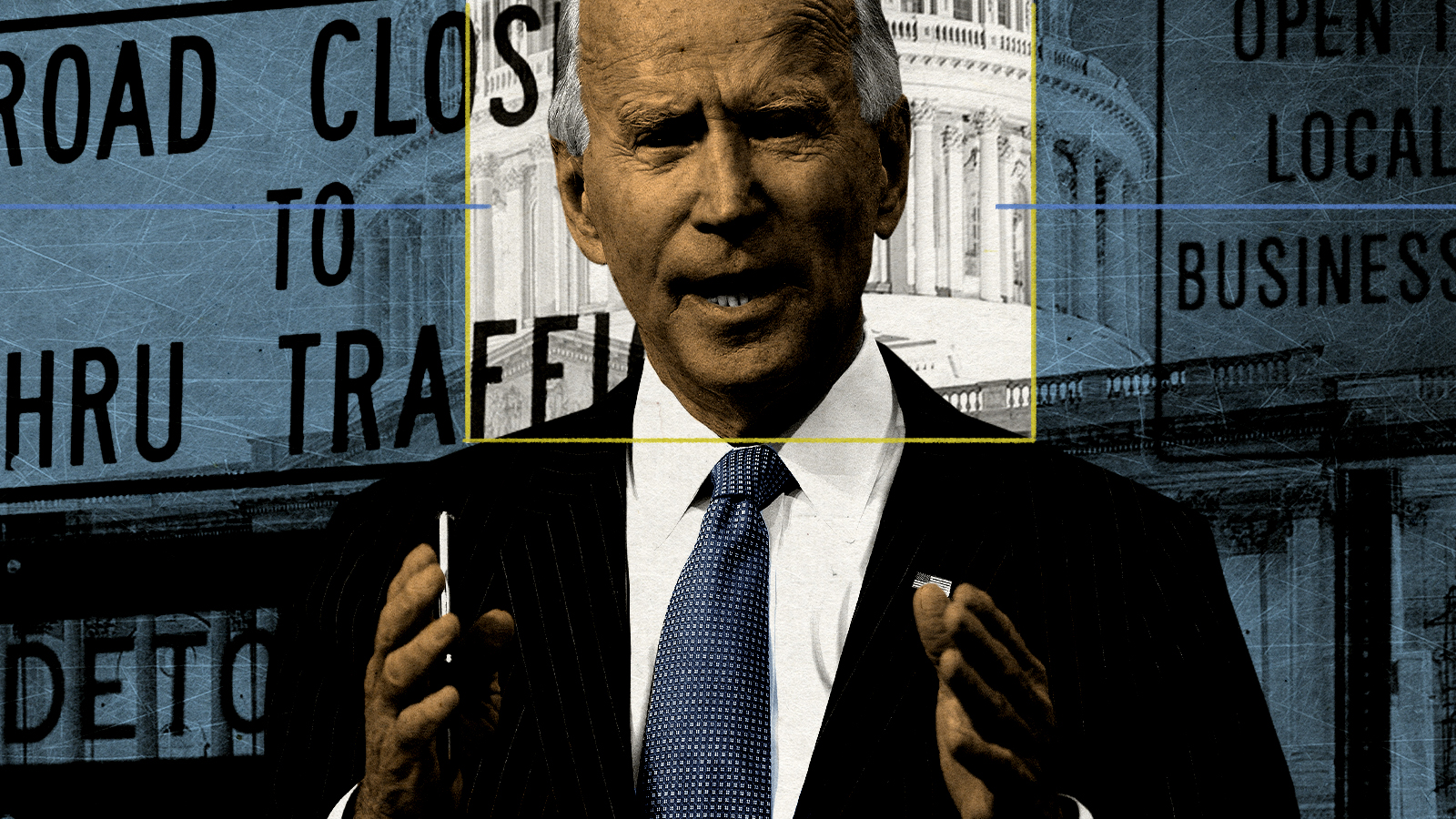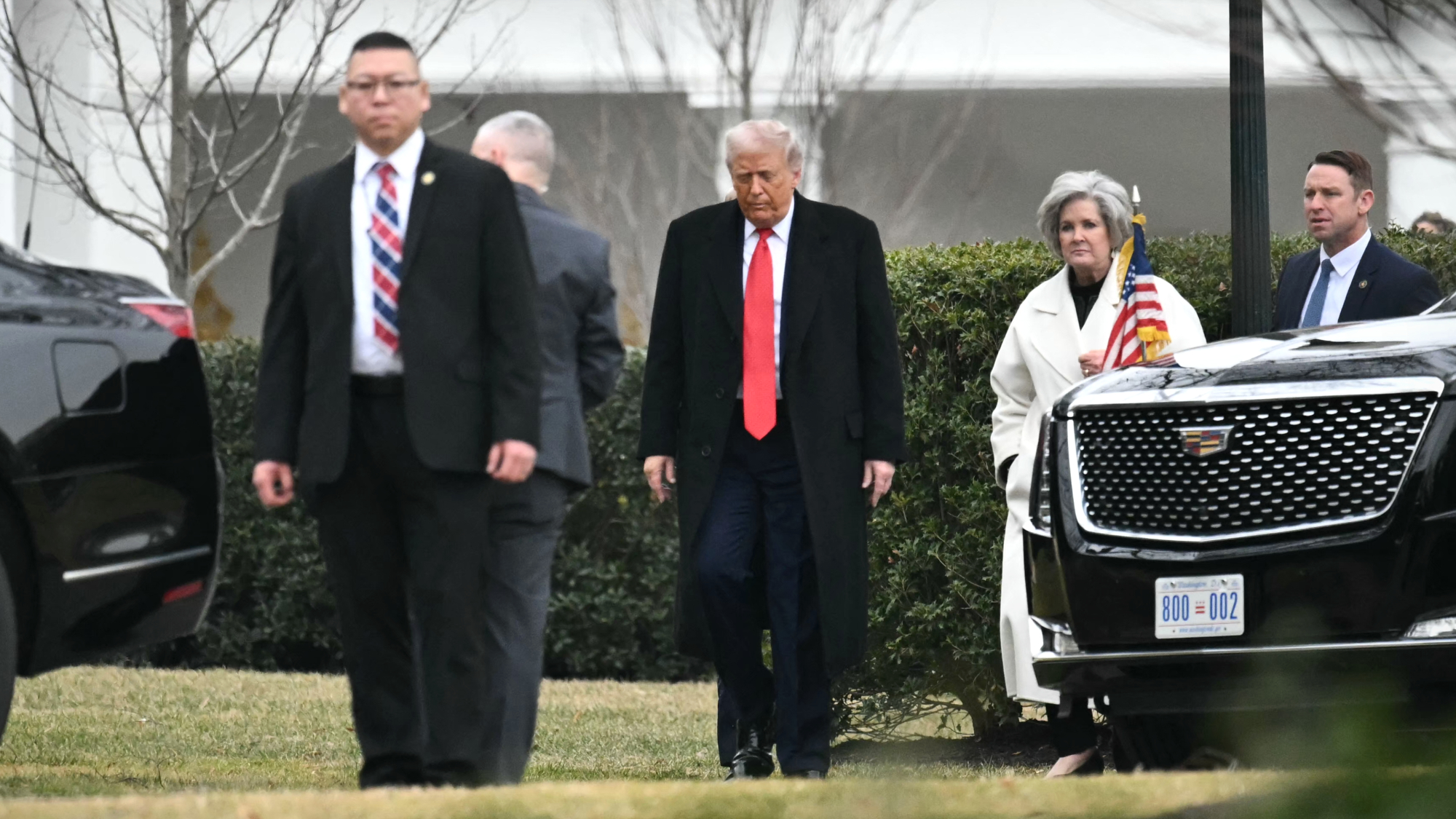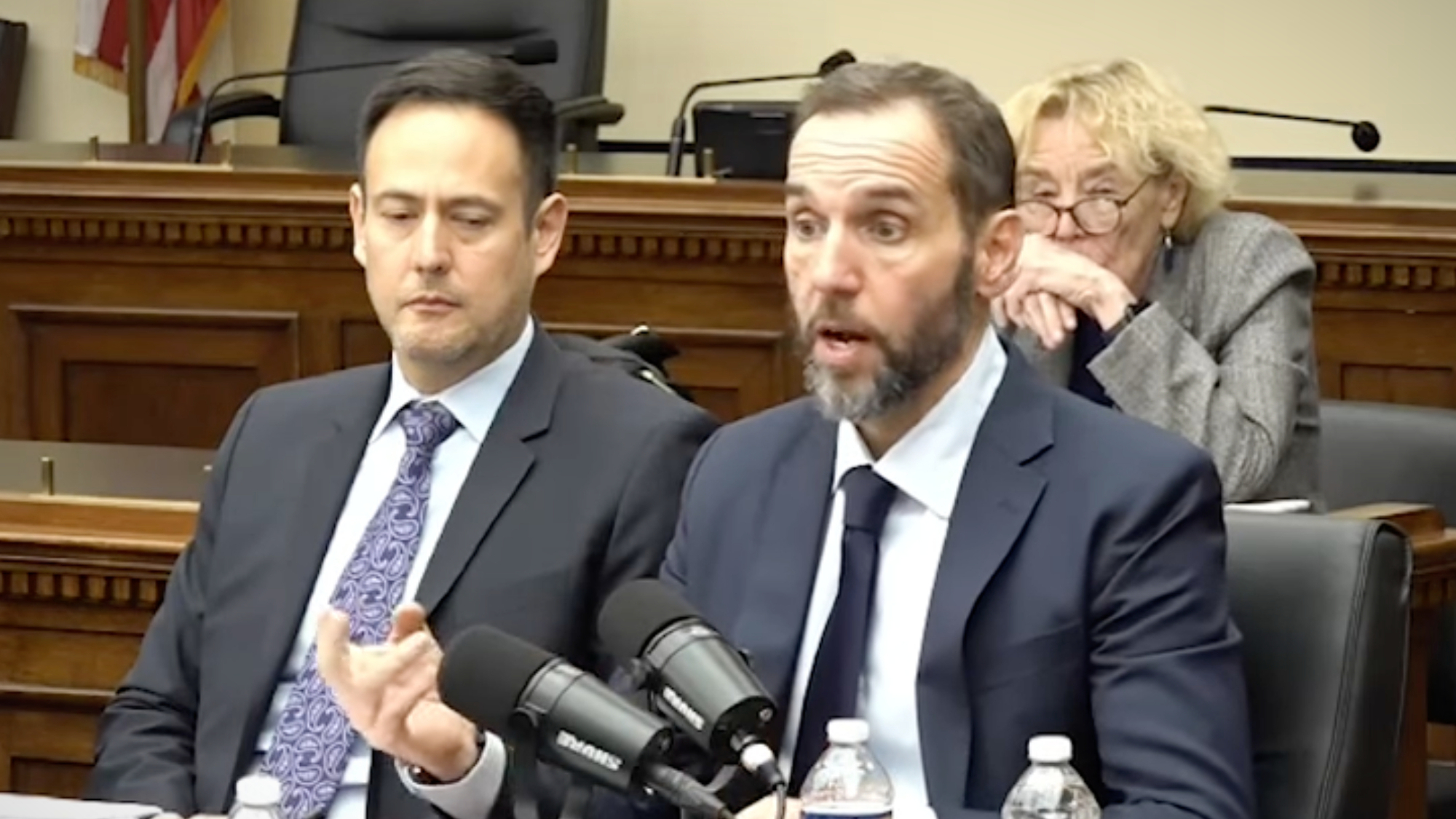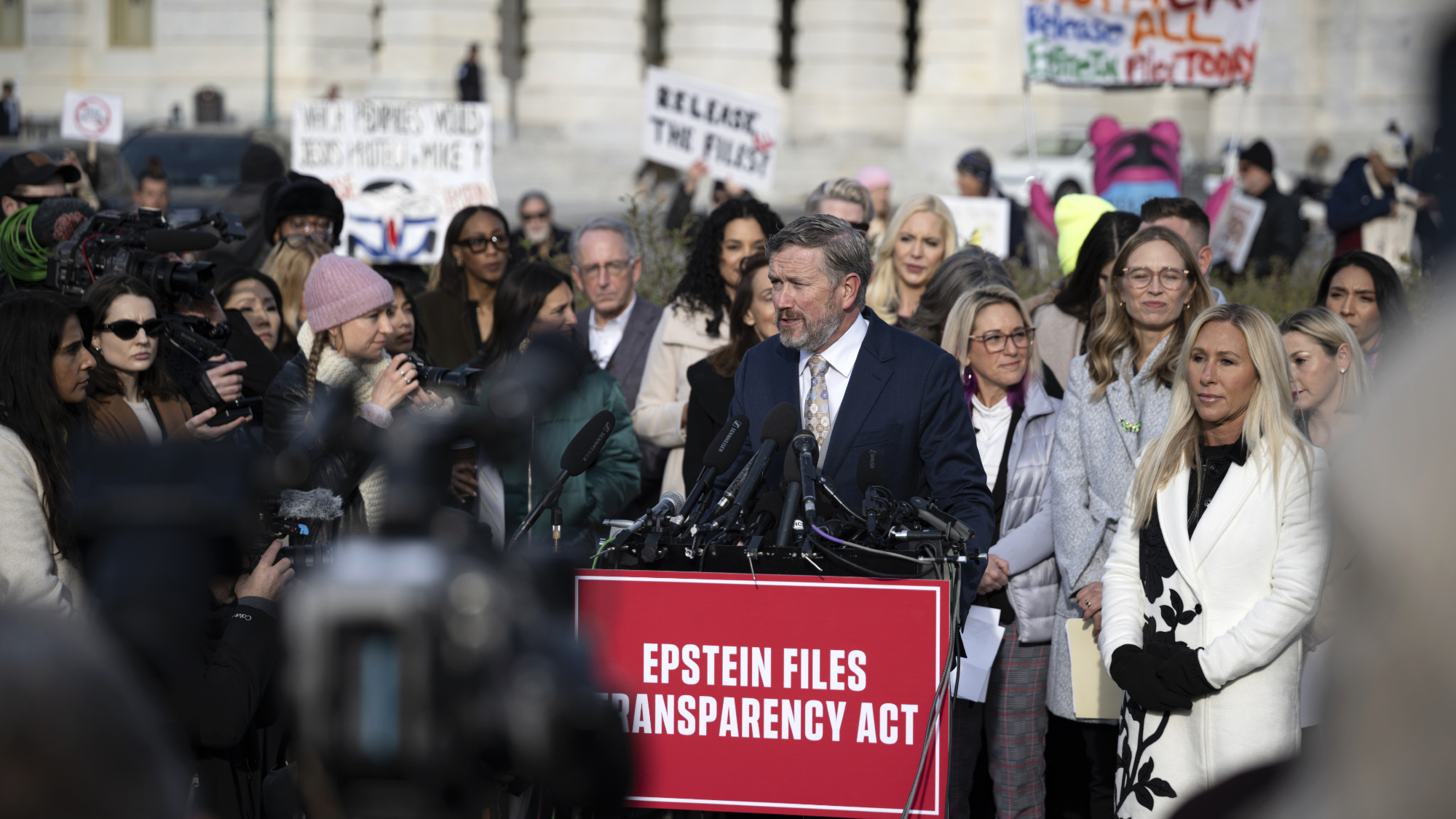Biden is quietly on the cusp of a major legislative victory
Biden has a sneaky path to an infrastructure victory — even without Build Back Better


A free daily email with the biggest news stories of the day – and the best features from TheWeek.com
You are now subscribed
Your newsletter sign-up was successful
Some Washington watchers were puzzled during President Biden's State of the Union address last month when he said it was "so important" for Congress to pass something called the "Bipartisan Innovation Act." To the best of just about anyone's knowledge, no such legislation existed.
Save the "senior moment" wisecracks. Biden was breaking out a new name for a couple of bills making their way through the House and Senate. While those bills are broadly similar in substance (a big subsidy for domestic semiconductor manufacturing, as well as increased funding for research and supply chain initiatives) and size ($350 billion for the House bill; $250 billion for the Senate version), each has a different name. And since the $1.2 trillion Bipartisan Infrastructure Law is a notable Biden achievement — and since the president often jokes about his lucky Irish heritage — why not give whatever Congress ends up passing a similar name? For good luck, if nothing else.
Oh, and there was probably one other reason for a new name: Surely few Americans have ever heard of the House's America Competes Act or the Senate's U.S. Innovation and Competition Act, despite their huge price tags. But they might want to get up to speed, ASAP. Although the dollar amounts pale compared to Biden's moribund $2 trillion Build Back Better proposal, these bills — once they're smooshed together — actually have a good chance of passing. The House version doesn't need any GOP votes, while the Senate version passed in bipartisan fashion, 68-32.
The Week
Escape your echo chamber. Get the facts behind the news, plus analysis from multiple perspectives.

Sign up for The Week's Free Newsletters
From our morning news briefing to a weekly Good News Newsletter, get the best of The Week delivered directly to your inbox.
From our morning news briefing to a weekly Good News Newsletter, get the best of The Week delivered directly to your inbox.
Although the Biden policy agenda may seem stuck at the moment, the president could be on the verge of a significant accomplishment. While Wall Street thinks there's maybe a one-third chance that some version of Biden's BBB plan passes — about the same as current recession odds — the eventual Bipartisan Innovation Act is seen as more likely than not.
And no doubt, Biden and his 42 percent approval rating need a win, especially if those Wall Street recession odds prove overly optimistic. Voters seem to have a fuzzy recollection of Biden's other big accomplishments, such as the $2 trillion COVID stimulus bill from March 2021. And one wonders, of those voters with a clear recollection of the American Rescue Plan, how many now think it contributed to the highest inflation rate in four decades? (Which it did, probably by at least several percentage points.) What's more, the eventual bipartisan infrastructure bill might appear potently relevant to America's problems at the moment; competition from China, COVID vaccines, and supply chain bottlenecks are all issues constantly making headlines.
Then there's the substance of the bills themselves, currently being negotiated by the House and Senate into a single bill. For me, the two underlying pieces of legislation are a mixed bag. I like the increased funding for basic research, as well as initiatives that would boost immigration for techies and entrepreneurs. I'm less thrilled with the parts that seem intent on mimicking top-down Chinese industrial policy, such as the funding for semiconductor manufacturing and efforts to create "Regional Technology and Innovation Hubs" across America. I suppose my ideal bill would focus almost purely on even bigger increases for basic research, as well as changes in the incentives and funding structures of government R&D, what wonks call "meta-science." Reforms might include more innovation prizes and awards funding through lotteries rather than the traditional merit review process.
That said, both the infrastructure and the competition/innovation bills — should the latter pass — have an importance that reaches beyond their individual details. For all the talk about American political dysfunction and hyperbolic speculation about the U.S. being a decadent failed state, such legislation argues to the contrary. Both attempt to address one of our big economic problems: the need to boost the nation's productive and innovative capacity.
A free daily email with the biggest news stories of the day – and the best features from TheWeek.com
In the past, special factors such as national emergencies and national security helped Washington get big things done, including the G.I. Bill, National Highway System, and Apollo program. And many special factors are again in play: the shock of a lethal pandemic, the threat of an increasingly chaotic climate, the challenge of a rising geopolitical rival in China, and now war in Europe. A paralyzed Washington would indeed be a stunning indictment of American democracy. Sometimes just moving forward is enough, even if the exact path isn't quite right.
James Pethokoukis is the DeWitt Wallace Fellow at the American Enterprise Institute where he runs the AEIdeas blog. He has also written for The New York Times, National Review, Commentary, The Weekly Standard, and other places.
-
 What to know before filing your own taxes for the first time
What to know before filing your own taxes for the first timethe explainer Tackle this financial milestone with confidence
-
 The biggest box office flops of the 21st century
The biggest box office flops of the 21st centuryin depth Unnecessary remakes and turgid, expensive CGI-fests highlight this list of these most notorious box-office losers
-
 What are the best investments for beginners?
What are the best investments for beginners?The Explainer Stocks and ETFs and bonds, oh my
-
 House ends brief shutdown, tees up ICE showdown
House ends brief shutdown, tees up ICE showdownSpeed Read Numerous Democrats joined most Republicans in voting yes
-
 Democrats win House race, flip Texas Senate seat
Democrats win House race, flip Texas Senate seatSpeed Read Christian Menefee won the special election for an open House seat in the Houston area
-
 House approves ACA credits in rebuke to GOP leaders
House approves ACA credits in rebuke to GOP leadersSpeed Read Seventeen GOP lawmakers joined all Democrats in the vote
-
 The billionaires’ wealth tax: a catastrophe for California?
The billionaires’ wealth tax: a catastrophe for California?Talking Point Peter Thiel and Larry Page preparing to change state residency
-
 Jack Smith: Trump ‘caused’ Jan. 6 riot
Jack Smith: Trump ‘caused’ Jan. 6 riotSpeed Read
-
 Bari Weiss’ ‘60 Minutes’ scandal is about more than one report
Bari Weiss’ ‘60 Minutes’ scandal is about more than one reportIN THE SPOTLIGHT By blocking an approved segment on a controversial prison holding US deportees in El Salvador, the editor-in-chief of CBS News has become the main story
-
 Can Mike Johnson keep his job?
Can Mike Johnson keep his job?Today's Big Question GOP women come after the House leader
-
 Congress passes bill to force release of Epstein files
Congress passes bill to force release of Epstein filesSpeed Read The Justice Department will release all files from its Jeffrey Epstein sex-trafficking investigation
